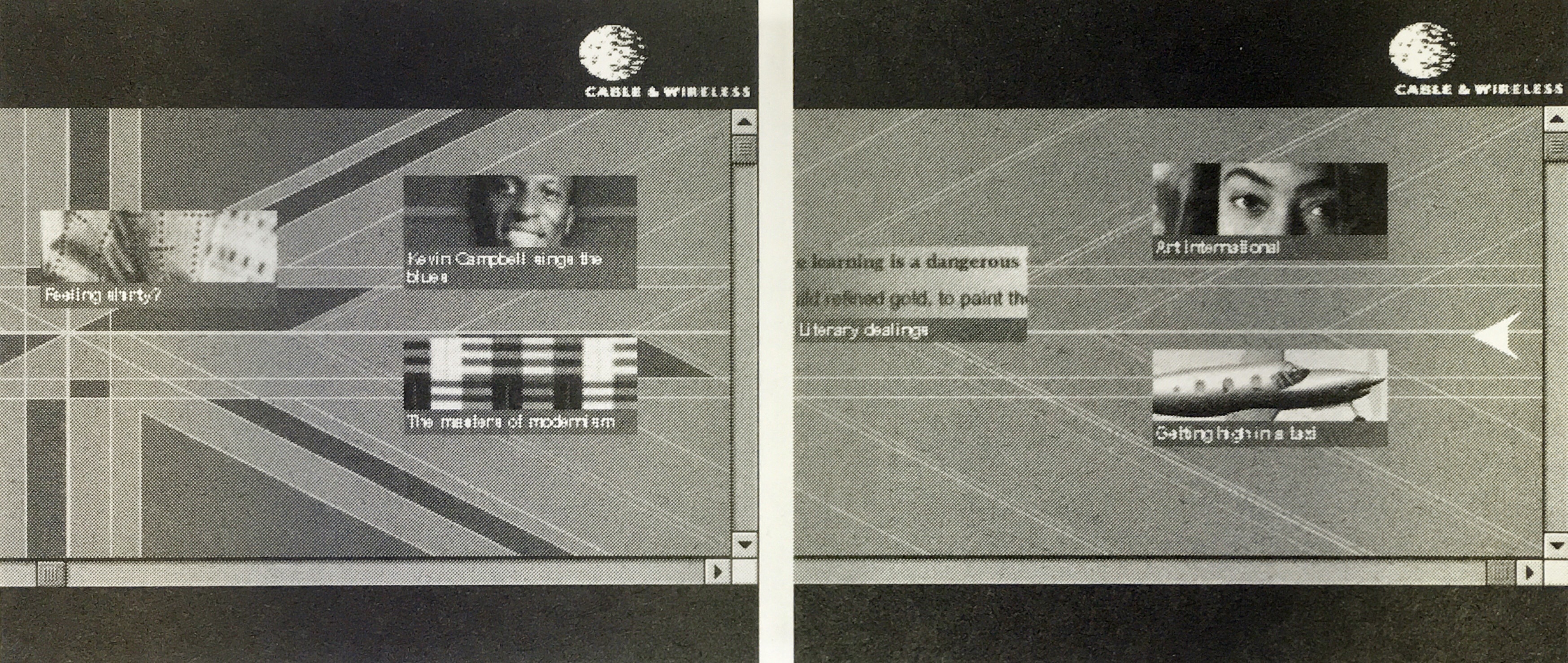Summer 2000
Empire of spin

An ‘official’ website tries to get to grips with contemporary culture. Critique by Rick Poynor

From the moment it arrived in power, in May 1997, Tony Blair’s New Labour government has been anxious to take the credit for everything that is positive about British cultural life, especially if it emanates from the young. Chart-topping rock stars chin-wagged with the Prime Minister at Downing Street parties; Culture Secretary Chris Smith rushed into print with his slim but export-conscious volume, Creative Britain, clad in a Damien Hirst spin painting; and ‘Powerhouse::uk’ (see Eye no. 28 vol. 7) banged a hollow drum for British design and lifestyle in a temporary expo of uncertain purpose in the incongruous, establishment setting of Horse Guards’ Parade.
Now, for those who like their ‘street culture’ to be granted the full weight of official, government approval, comes the Planet Britain 2000 website (and accompanying CD-ROM) from the Foreign & Commonwealth Office (planet-britain[dot]org*). The project’s aim, according to its editor, Shauna McLean, is to ‘positively influence the views of a British and international audience in the 16-25 age group’ and to promote the United Kingdom’s image as a ‘vibrant country of modern design and innovative creation’.
To give credit where it’s due, this is a massive undertaking – the site is updated every month – and the ten subject areas, including Street Culture, Art, Design and Media, Science and Technology, Sport, Business, and Music, contain many hours of reading. The directory makes no claim to be comprehensive, but its entirely predictable obsessions and oversights reveal more than its makers intended about cultural values in Britain today. While fashion is exhaustively treated, with individual entries for no fewer than eighteen designers, contemporary writing apparently boils down to Martin Amis, the overhyped lightweights Helen (Bridget Jones) Fielding and Nick Hornby and just three other writers. In the film section, Four Weddings and a Funeral is a ‘classic’, but not, it seems, The Third Man. Guy Ritchie (one feature film to date) rates a mention; Michael Powell, Nicolas Roeg and Peter Greenaway don’t.
The entries vary enormously in quality and style, from neutral facts, which are all that’s needed, to outbursts of nationalistic cheer-leading, as phrases like ‘global force’, ‘world leader’, ‘innovative’, ‘push back the boundaries’ and ‘final word in cutting edge’ rain down on the reader. The visual arts are particularly ill-served. Planet Britain’s view of graphic design stretches no further than Peter Saville, Me Company, Tomato and The Attik. The Face, we are assured, is in the grip of ‘continual typographic innovation’ that no one else can equal. Britain is home to ‘the world’s most exciting and challenging art scene since Surrealism’, but a tame Hirst sheep in a tank has to suffice as visual evidence, followed by brief, arbitrary entries on Rachel Whiteread, Sarah Lucas and Gilbert and George. Images are unengagingly small and can’t be expanded for a better look.

If anything genuinely challenging crosses its path, Planet Britain smoothly draws its sting. The Sex Pistols are recast as a wholesome music ‘legend’ alongside the Beatles and Elton John – no mention of ‘Anarchy in the UK’ or ‘God Save the Queen’. In the song ‘Real Great Britain’, Asian Dub Foundation explicitly blast ‘New Britannia Cool’, demanding, ‘Who are you trying to fool?’, but here they are, anyway. And ‘Media terrorist’ Chris Morris, creator of Jam, one of the most disturbing television series in years, gets an official thumbs-up for showing the ‘playful subversion of the situationists’. Jump up and down all you like, nothing fazes the trendy civil servants at the FCO.
Planet Britain is further evidence (though none is needed) of the speed with which even the most would-be resistant forms of culture are assimilated. You might interpret this as a sign of an open society. Or you could conclude that tolerance itself has become a subtle form of repression, as the cultural agenda is determined by fashion, hype and spin. (Is it coincidence, for instance, that White Cube, a private gallery, features on Planet Britain’s list of just three London galleries?)
If the FCO wants to convince the wired world out there that Britain is vibrant, dynamic, innovative and worth visiting, then it should make its own website vibrant and dynamic to use and explore. After the first few colour changes, scrolling left and right along the ‘deconstructed’ Union Jack – its one visual idea – quickly palls.
Rick Poynor, writer, founding editor of Eye, London
* The site no longer exists.
First published in Eye no. 36 vol. 9, 2000
Eye is the world’s most beautiful and collectable graphic design journal, published for professional designers, students and anyone interested in critical, informed writing about graphic design and visual culture. It is available from all good design bookshops and online at the Eye shop, where you can buy subscriptions, back issues and single copies of the latest issue.

